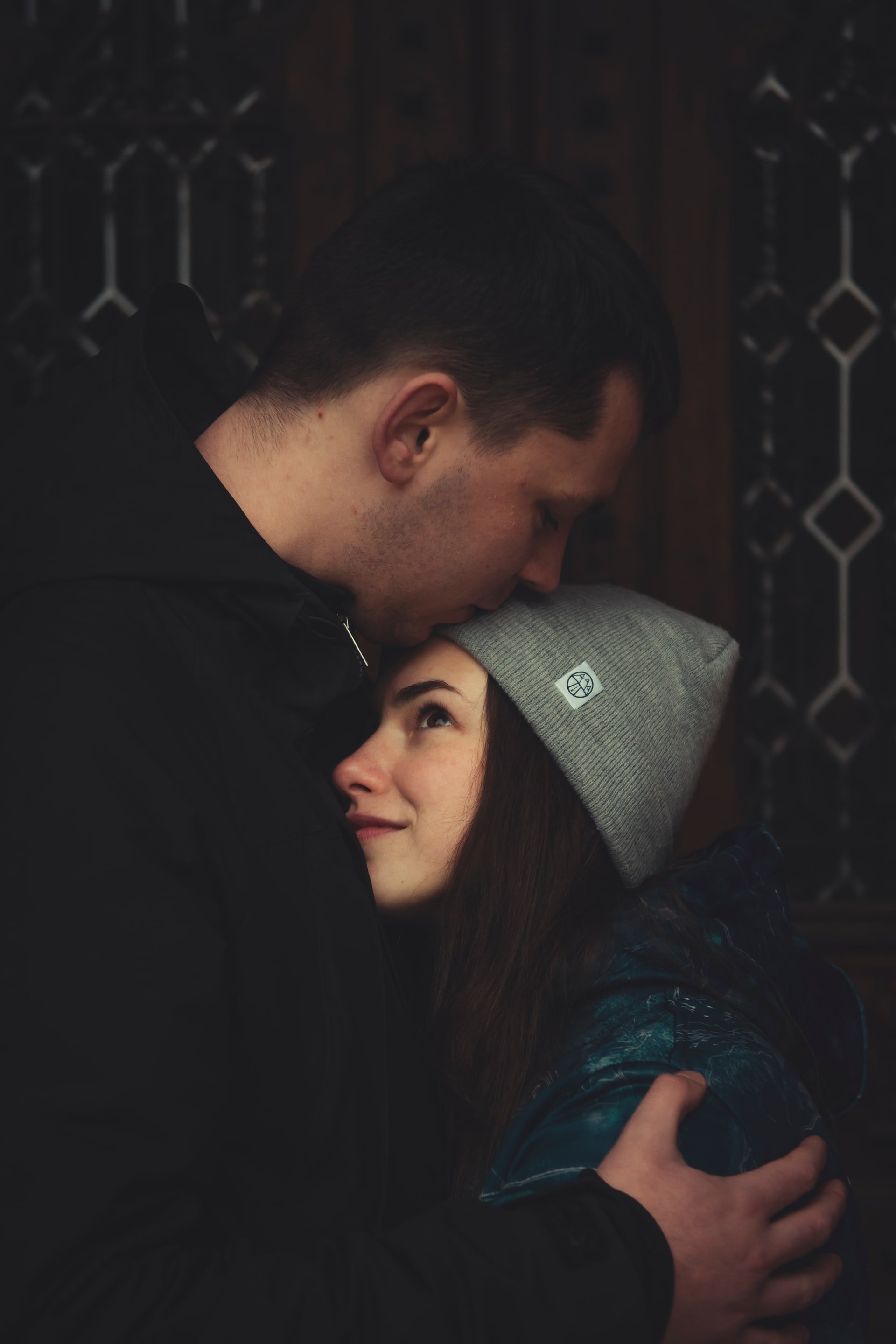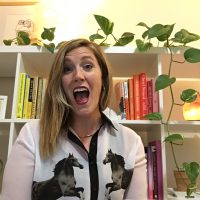I am someone who has a pretty good read on her intuition (now), but that wasn’t always the case.
I have some conflicting personality traits that have made knowing myself damn tricky.
I’m a people pleaser, intimacy-craver, and conflict-avoider, but I am also stubborn and independent. These traits clashed. (Trust me, I was super fun to be in a relationship with.)
What wound up happening was when I found myself in close relationships, my comfort was based on making or keeping my partners comfortable and avoiding conflict at all costs, all the while slowly, over time, resenting them for not knowing the real me, for keeping me small, and for forcing me to be someone I wasn’t.
Then, after a while, I’d explode in an astounding display of angst, blame, and self-righteousness that no one saw coming (least of all me), and run off to be by myself again—catering to my own wants and needs at last.
I have spent most of my life either alone or trying to make others happy. And not because they asked me to, but because their wants and needs were so much clearer to me than my own.
I became so used to this routine that I assumed this was being in a relationship. I started to think that making other people happy was what made me happy.
I feared discord, confrontation, and unease so much so that I would bend and fold and back-flip my way into shapes I believed would make other people comfortable. Then, I’d become so contorted and uncomfortable—my ribs would be aching, my nails nubs, and my hair thinning—that I’d have to escape.
So I’d blow up the relationship and run for the hills in a fit of tears, dramatics, and hyperventilating, until after a few months, my breathing would return to normal and I’d miss being cuddled again.
I didn’t know how to value my own wants and needs on the same level that I placed others’ wants and needs, because I didn’t know what mine were.
So rather than figure them out, I just looked for people who seemed confident enough for the both of us. Often what that looked like was being attracted to arrogance.
For a long time, I hoped to find someone solid enough and sure enough that I wouldn’t have to learn to support myself. I hoped to bypass that whole part of developing a solid foundation within myself, and instead find safety and security because of someone else’s stability.
I thought if I looked for someone who seemed like they knew something that I didn’t, then I’d be okay. But arrogance, more often than not, is just a mask to appear brave and in control, worn by someone who feels neither of those things.
So you see? I was attracting in others exactly what I was.
The universe was giving me exactly what I knew to be true and would continue to do so if I kept avoiding my work. I was looking for someone else to be my strength and my compass and my certainty.
Which would have been fine—shallow and dissatisfying, but fine—if only my heart would stay put. But she never would (selfish b*tch).
She wanted to be let out of the cage I was keeping her trapped in. She wanted authenticity, trust, accountability—in others, sure, but mostly as the foundation to my relationship with myself.
I didn’t trust my intuition.
Amidst the wants and needs of others, trying to remain centred in myself when I didn’t know where my centre was made me confused and overwhelmed, and it felt like the whole world was spinning.
So, it seemed safest to hitch my wagon to whoever seemed the most sure. I might complain, after the fact, of not being listened to, but the truth was that, in the moment, I was too afraid of being heard to speak up. And speaking up is damn near impossible when you haven’t found your voice.
When you can’t look away from your patterns anymore, when you’ve simplified to the point of no longer being able to ignore the truth, your options get really simple: adapt or die.
I was sick of my relationships always ending the same way, and I could no longer look away from the truth: it wasn’t them. It was me.
So, who am I?
I realized that in order to get to know myself, in order to know who I really am and what I really want and need, then I had to rid my life of the superfluous.
For a few years now, I have been trying to scale back, get down to basics, find the bare bones of myself—minimalism in every sense of the word. I’ve found that when I am intentional with my resources—my words, my time, my money, my love—it becomes quite easy to identify when something is out of place. I don’t have to look for it, my life shows me.
It becomes easy to keep your apartment clean when the only clothes in your closet are the ones you wear, and you don’t have excess mugs, or shoes, or shampoo bottles that don’t get used and don’t fit anywhere.
It’s easy to see that the “friend” you keep hanging out with always leaves you feeling bad about yourself after you go for coffee, when you’ve identified how you do want to feel and who in your life does make you feel that way.
It becomes an exact science identifying what it is you’re feeling when your phone is turned off and in the drawer so there’s nothing to distract you from what’s going on inside you.
Minimalism and being intentional with everything you consider valuable are what lead you to your intuition.
It’s scary to look back on a life with so many risks taken and see how truly dangerous it was, given there being no internal compass. It’s easy to understand how outcomes can be so different for people who perform the same work, take the same trips, have the same (from the outside) relationships, but the only difference is that one person trusts themselves and the other doesn’t.
I wasted a lot of time not knowing myself and not trusting myself, hoping that others could do the work for me.
I was hard on partners who couldn’t possibly know what I hadn’t identified for myself.
I see now that it’s okay to be afraid, but it’s not okay to make others feel bad for knowing what they want and camouflaging your anger as being about them never listening to you, when what you’re really angry about is that you don’t know what you want.
Showing up as an equal in a relationship means first showing up for yourself in the ways you’ve been expecting partners to do—knowing your wants and needs, being firm on your boundaries, and being confident enough to compromise on the negotiables.
I would love to blame my partners, but ultimately it is on each of us to figure it out for ourselves—and that only comes by leaning into our intuition and trusting it at all costs.
~


 Share on bsky
Share on bsky





Read 0 comments and reply